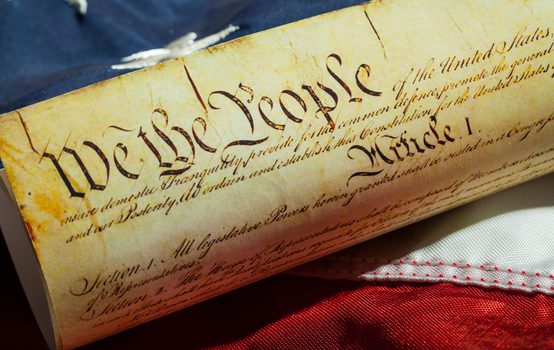The Freedom Caucus Vindicates the American System

Since the ignominious failure of the Obamacare repeal effort, President Trump has been lashing out at the Republican House Freedom Caucus on Twitter. “The Freedom Caucus will hurt the entire Republican agenda if they don’t get on the team, & fast,” he tweeted in a remarkable threat to members of his own party. President Trump’s frustration with legislative obstruction overlooks the fact that that obstruction is itself one of the greatest strengths of the American system of government.
The beauty of the American system is that it enables not only members of opposition or minority parties like today’s congressional Democrats, but also members of governing or majority parties, to curb executive power. What happened last month was an example of that phenomenon. Unlike the way things work in British-style parliamentary systems like that of my home country of Canada, with their fusion of the executive and legislative branches of government, Congress is elected separately from the president. Members of both chambers of Congress are accountable primarily to their constituents at the ballot box rather than to party leaders.
Republicans in the House were thus free to resist whatever pressure the Trump White House and Speaker of the House Paul Ryan exerted on them to vote for the American Health Care Act (AHCA). Contrary to the president’s incensed tweets, the AHCA went down to defeat not only thanks to the House Freedom Caucus, but also thanks to the so-called “Coverage Caucus” of more cautious Republicans who balked at the prospect of depriving millions of their constituents of health insurance. Freedom Caucus members and their allies refused to support the bill because it was not enough of a departure from the Affordable Care Act for them; “Coverage Caucus” Republicans opposed it because, in effect, it was too much of a departure from Obamacare.
Concessions to either of those two factions tended to alienate members of the other one. For example, the AHCA’s final draft would have eliminated Obamacare’s mandate that all insurance policies offered in the individual market cover 10 “essential health benefits.” Yet some previously undecided House Republicans, such as Rep. Rodney Frelinghuysen (R-N.J.), ultimately came out against the bill for that very reason, since it “would place significant new costs and barriers to care on my constituents in New Jersey.”
If President Trump had the kind of power that Canadian Prime Minister Justin Trudeau wields, he would have been able to do something virtually unthinkable in American politics: to punish recalcitrant Republicans from both the Freedom and Coverage Caucuses alike by simply expelling them from the Republican Party altogether.
In the first place, Trump would have been a member of Congress himself; in British parliamentary governments, the prime minister and cabinet ministers start out as and remain elected members of parliament (hence the aforementioned executive-legislative fusion). Secondly, if the federal government were reconstituted along Canadian lines in particular, President Trump would have been the official leader of the Republican Party at the federal level, with GOP candidates required to secure his approval in order to be nominated by the party to run for their seats. As for the U.S. Senate—where the AHCA was especially unpopular—it would have been a totally unelected body, appointed directly by the president as head of state, with no legislative check on that power whatsoever.
Thus, if President Trump had Prime Minister Trudeau’s power, he could have ejected disobedient congressional Republicans from the GOP, forcing them to sit as independents and denying them party funding for their reelection campaigns—a frequent enough practice in Canadian politics. With this kind of power, President Trump could have more effectively intimidated Republican congressmen into voting for the AHCA and any other legislation he was determined to get passed.
Staunch Trump supporters who feel tempted to condone such a practice should think twice, for the same reason why their liberal counterparts should do so: two parties can play the same game. Advocates of greater centralization of power within Washington should ask themselves whether the benefits that would accrue to their own pet political causes from such reform would be worth the cost of the greater power that the opposing party would wield when it is in the majority.
Over the past seven years, for example, opponents of Obamacare have made much of the fact that the Affordable Care Act was passed without any Republican support. Yet imagine how much more intrusive, expensive, and burdensome Obamacare might have been if President Obama had been able to punish certain congressional Democrats for their reluctance to endorse a more ambitious form of health-care reform, perhaps something closer to a single-payer system. At a minimum, the ACA might have included a government-run health-insurance program for which the country’s whole population would have been eligible—the so-called “public option” that was removed from the bill after former Democratic Sen. Joe Lieberman threatened to filibuster it.
One of the American system’s strengths is that, in a country that is more ideologically diverse and fractious than its counterparts in the rest of the free world, it prevents any one political faction from riding roughshod over the others too easily. President Trump and other Republicans frustrated at the Freedom Caucus’s obstruction should remember that their freedom to engage in that obstruction is a feature of the constitutional system from which both parties ultimately benefit.
Akil Alleyne is a Young Voices Advocate and legal writer based in Montreal.
Comments